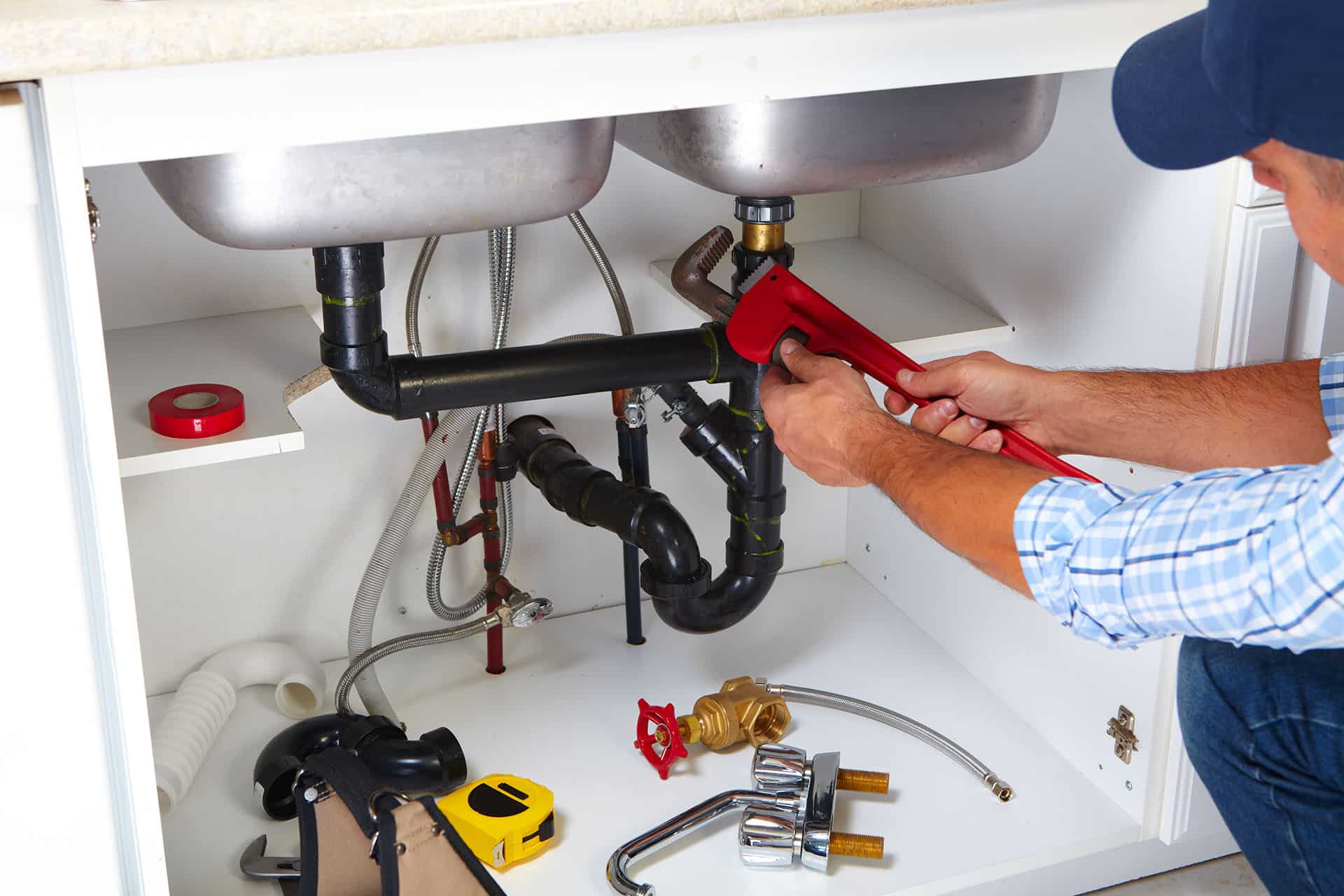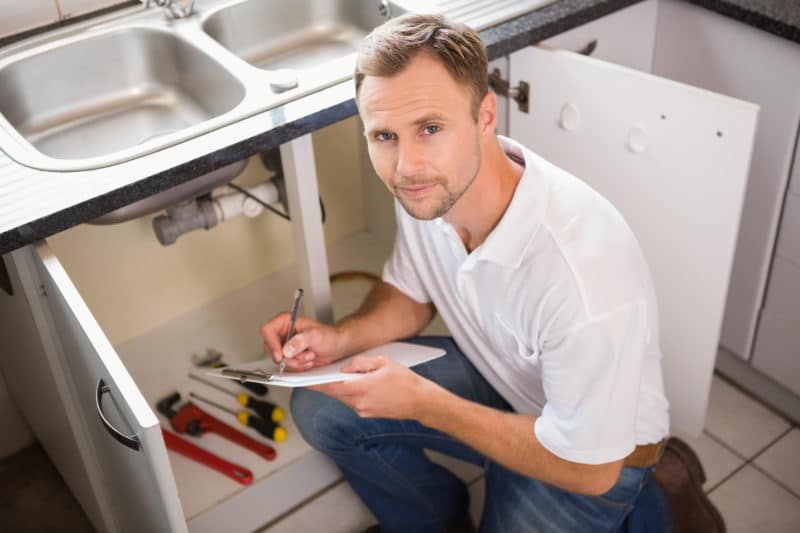Are You Damaging Your Plumbing Systems? Six Key Indicators
Are You Damaging Your Plumbing Systems? Six Key Indicators
Blog Article
We've noticed this post relating to Can Hard Water Ruin Your Appliances? below on the internet and figured it made good sense to relate it with you on this site.

The key to long lasting devices, unsurprisingly, appertains maintenance. There's no set regulation that can guarantee your plumbing appliances a long wear, but you can stop unnecessary damage and repair services by staying clear of bad plumbing behaviors.
You should quit doing these 6 things else you'll keep calling your plumber over for minor faults.
Flushing everything
Yes, your commode drain brings about the sewage systems, however that doesn't suggest you must unload simply anything down the tubes. Many 'flushable' products are really wonderful clog beginners, as an example floss. Asides maintaining noticeable non-flushable materials like cables and also plastics out of your bathroom, you must also prevent flushing cotton swab, menstrual products, wipes, daipers and also condoms down the toilet drainpipe.
Pouring oil in the sink
We know effectively taking care of oil after a hearty meal is a discomfort. However merely pouring it down the tubes can do lasting harm to your pipelines. "The fat and also grease can obstruct your drainpipe severely sufficient to require you to call a plumber," explains Dawson. "Plumbing functions best when it's well taken care of-- not abused with grease."
Making use of too much drain cleaner
Using a drainpipe cleaner greater than once or twice a month is an indicator that something significant is taking place within your pipes. Currently, as opposed to facing the major issue, you opt for a quick fix; a fizzy drainpipe cleaner. Rightfully, a drainpipe cleaner will care for the clog, yet at what cost?
The chemicals in a drainpipe cleaner can hasten the deterioration of your pipes. Add that to whatever underlying trouble is creating the obstruction as well as you may need to a major trouble on your hands.
If you experience a lot of blockages, call your emergency plumber instead of making use of a drain cleaner.
Not rinsing dishes prior to loading them into the dish washer
it's called a dish washer, however throwing in recipes, pots, and pans covered in large food particles can in fact cause some serious damage to the appliance, resulting in long-lasting troubles down the line. "House owners may have to get their dishwasher repaired regularly if they don't rinse their dishes prior to loading, or at the very least remove bigger food items," explains Audrey Monell, owner of Forrest Anderson Plumbing as well as AC in Glendale, Arizona. "Food that gets stuck on dishes triggers the dish washer to function harder, which can wear down parts quicker, leading to issues."
DIYing everything
With plumbing, a stitch in time actually does conserve nine. You can protect against a fullblown plumbing emergency by calling your plumber at the correct time.
You might have found out a few plumbing hacks from your papa, however you should understand where to fix a limit and also call an expert. For example, you may have the ability to repair an obstruction on your own, but you should not try to alter a pipeline. You could inequality pipes or overtighten a bolt, creating more injury and damage than you assumed. Calling a plumber is a secure and also affordable decision.
Not altering your dishwashing machine hose pipes
One easy means to make certain that you use your dishwasher for several years is to replace the hose a minimum of once in 5 years. This also requests cleaning machine pipes.
Over time, food bits, soap and also oil can form blockages within your pipelines. Changing them on schedule will protect against any presure build up that can damage the interior functions of your dishwashing machine or cleaning maker.
An enhanced steel entwined tube does a fantastic job of prolonging your machine's usage time.
No winter months preventative measures
Severe weather are bad for your pipelines, specifically if they're made from steel. You ought to shield your subjected pipes, and also your water tank, even if you have a hot water heater. You must also shut off your garden hose pipe valve and any other exterior water channels. These channels are outlets for cool; you pipelines can begin to ice up from outside if you don't.
WAYS TO AVOID DAMAGE TO YOUR PLUMBING SYSTEM
DON’T DUMP GREASE DOWN THE DRAIN
Grease is your plumbing’s worst enemy. After cooking bacon, it’s wise to find a better way to dispose of the grease. Grease is solid at room temperature and should never find its way to your pipes. Once the grease gets to the P-trap under your sink, it solidifies and becomes a sticky trap for debris and gunk. The blockage will eventually clog or slow your drain.
If the grease finds its way to the sewer, it will meet with all sorts of wastes and cause a blockage. If you pour grease down the drain accidentally, remove it with natural cleaners like baking soda and vinegar.
FLUSH YOUR GARBAGE DISPOSAL
A garbage can in the kitchen is unsightly, and that’s why people invest in garbage disposals. Your garbage disposal helps to reduce odors in the kitchen sink; it mutilates the food particles and enables them to drain easily. The disadvantage of having a garbage disposal is that it can harbor waste and odors.
Avoid putting items that cannot be broken down easily into the garbage disposal. Running cold water often helps to flush food particles from the trap to the waste pipes without damaging the moving parts.
If the moving parts start grinding, turn off the faucet and add one tablespoon of baking soda and one cup of vinegar. Turn on the garbage disposal for several minutes until the grinding stops. Then, flush it with hot water.
DON’T FLUSH UNWANTED MATERIALS IN THE TOILET
Be careful when flushing things down the toilet. Even food scraps don’t break down as easily, meaning that they can clog your sewer line. The last thing you want is to have a clogged toilet in your home.
If you drop something into the toilet, don’t assume that a flush will unclog it. Instead, try to remove it with a plunger. If the plunger does not work, use the plumber’s snake to remove it. Fill the toilet with water, and use the plumber’s snake to dislodge it. You might have to call a plumber if these methods don’t work.
FIX YOUR FAUCETS
Almost every homeowner has experienced a problem with dripping faucets. Besides being annoying, they can drip away gallons of water over time and cost you money. The internal washer becomes worn out and dislodged, especially if you live in a hard-water region.
Turn off the water supply and disassemble the faucet with a wrench. Tape the edges of your wrench with tape to avoid scratching your faucet. Remove the mineral deposits with vinegar and a scouring pad. If the ring and washers have become rusty and disfigured, be sure to replace them.
DEAL WITH LOW WATER PRESSURE
If water trickles from your faucets instead of gushing, you might have a deeper problem to deal with. Find out whether the problem has affected one appliance or the entire house. If your neighbors are not having the same problem, then you need to check the main water supply valve to ensure that it’s fully open.
In some cases, low water pressure means that most of your appliances and pipes are clogged. You need to disassemble the affected appliances and use vinegar to dissolve the mineral buildup.
WINTERIZE YOUR PIPES
When water freezes in the pipes, it expands significantly as it turns to ice. This expansion generates enormous pressure that causes damage to the pipes. Experts recommend winterizing your plumbing if your house will be vacant for a while. You don’t want to deal with all sorts of problems when you return home from holiday.
During the winter, it’s wise to prepare your plumbing for the freezing temperatures by insulating the pipes in the unheated areas. These include the crawlspaces, attic, and garage. Let the faucet drip as running a trickle through the pipes will prevent them from freezing.
Pipes freeze and burst at 32 degrees Fahrenheit, the freezing point for water. According to Energy Star, you should set your thermostat at 70 degrees Fahrenheit during the winter for optimum energy efficiency.
https://hufthomeservices.com/8-ways-to-avoid-damage-to-your-plumbing-system/

As a serious reader on Don’t Let an Earthquake Damage Your Plumbing, I figured sharing that excerpt was a smart idea. You should take the opportunity to distribute this page if you appreciated it. I am grateful for your time. Don't forget to stop by our blog back soon.
Schedule An Appointment Report this page